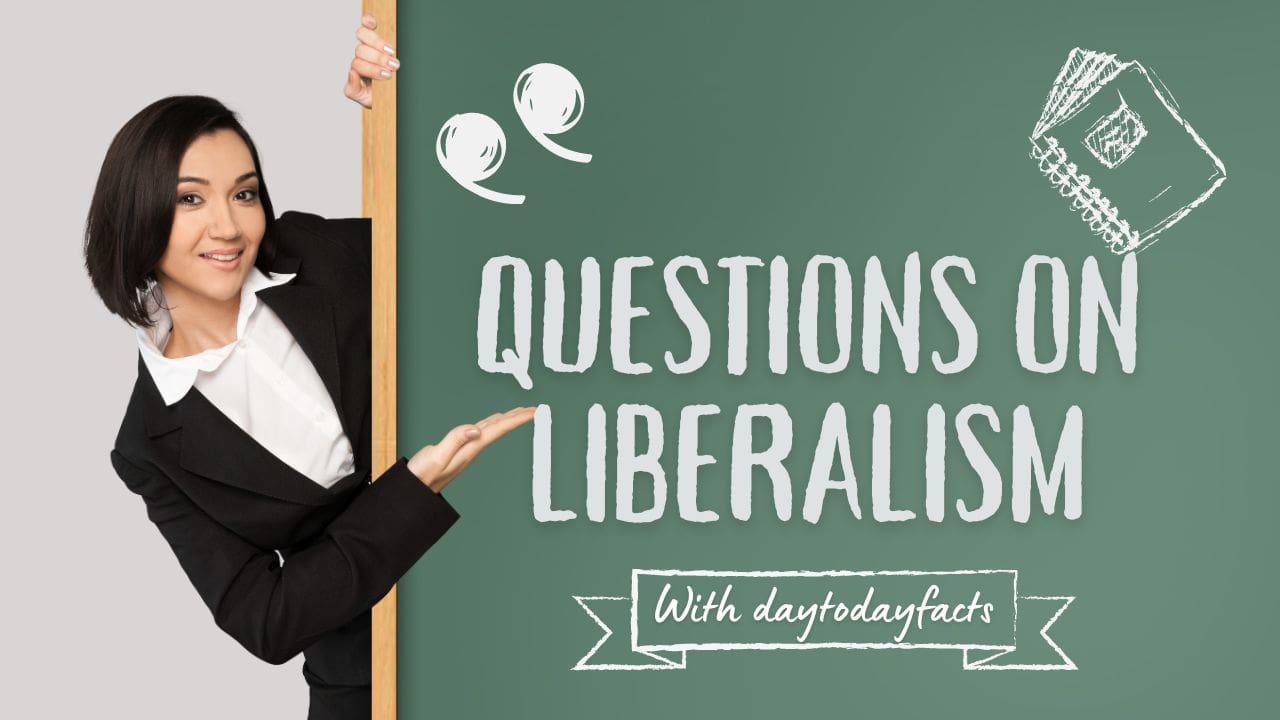Liberalism
1. The term liberalism is derived from the word ‘liber’ which is a:
(a) Latin word
(b) French word
(c) Greek word
(d) None of these
Ans. (a) Latin word
2. Who among the following is known as ‘father of liberalism”:
(a) J.S.Mill
(b) Locke
(c) Hobbes
(d) None of these
Ans. (b) Locke
3. The book ‘Liberalism'(1911) is written by:
(a) David Smith
(b) Laski
(c) L.T. Hobhouse
(d) None of these
Ans. (c) L.T. Hobhouse
Net Political Science question paper
4. Who among the following is not an exponent of the scientific method:
(a) John Locke
(b) Francis Bacon
(c) David Hume
(d) Max Weber
Ans. (d) Max Weber
5. Classical liberalism is also known as:
(a) Negative Liberalism
(b) Positive Liberalism
(c) Libertarianism
(d) None of the above
Ans. (a) Negative Liberalism
6. Who among the following are the exponents of classical liberalism:
(a) John Locke
(b) Adam Smith
(c) Bentham
(d) All of these
Ans. (d) All of these
7. Who among the following is known as the founder of Utilitarianism:
(a) Bentham
(b) Adam Smith
(c) Mill
(d) All of these
Ans. (a) Bentham
8. The book ‘Wealth of Nations’ is written by:
(a) Adam Smith
(b) Jeremy Bentham
(c) Herbert Spencer
(d) Karl Marx
Ans. (a) Adam Smith
9. ‘Struggle for existence’ and ‘Survival of the Fittest’ are the two principles of the theory of biological evolution given by:
(a) Adam Smith
(b) Jeremy Bentham
(c) Herbert Spencer
(d) Karl Marx
Ans. (c) Herbert Spencer
10. Who among the following first distinguish positive liberalism from negative liberalism:
(a) John Locke
(b) T.H Green
(c) Bentham
(d) J.S. Mill
Ans. (d) J.S. Mill
11. Who among the following is an English philosopher, add moral dimensions to Liberalism:
(a) John Locke
(b) T.H Green
(c) Bentham
(d) J.S. Mill
Ans. (b) T.H Green
12. Who among the following is not an exponent of Positive Liberalism:
(a) T.H. Green
(b) L.T. Hobhouse
(c) Adam Smith
(d) All of the above
Ans. (c) Adam Smith
13. The book ‘Acquisitive Society’ (1920) is written by:
(a) R.H. Tawney
(b) David Hume
(c) Immanuel Kant
(d) John Rawls
Ans. (a) R.H. Tawney
14. Which among the following is believe in the primacy of the ‘spontaneous order’ of human relationships as exemplified by the free market:
(a) Classical Liberalism
(b) Negative Liberalism
(c) Neo-liberalism
(d) None of these
Ans. (c) Neo-liberalism
15. Which among the following is believe in the functioning of ‘welfare state‘:
(a) Classical Liberalism
(b) Negative Liberalism
(c) Neo-liberalism
(d) Modern liberalism
Ans. (d) Modern liberalism
16. What is the central principle of liberalism?
a) Equality
b) Authority
c) Individual freedom
d) Socialism
Ans: c) Individual freedom
17. Which economic system is most closely associated with liberalism?
a) Communism
b) Mercantilism
c) Feudalism
d) Capitalism
Ans: d) Capitalism
18. How does liberalism generally view government intervention in the economy?
a) It supports extensive government control
b) It favors minimal government intervention
c) It advocates for government ownership of all industries
d) It promotes complete government regulation
Ans: b) It favors minimal government intervention
19. Which of the following is one of the core value in liberalism?
a) Capitalism
b) Authoritarianism
c) Tolerance
d) Isolationism
Ans: c) Tolerance
20. In liberal theory, what is the primary role of the state?
a) To regulate all aspects of life
b) To enforce equality of outcomes
c) To protect individual liberties
d) To suppress dissent
Ans: c) To protect individual liberties
21. Which philosopher is associated with the idea of the “invisible hand” in economics, a concept related to liberalism?
a) John Stuart Mill
b) Adam Smith
c) David Ricardo
d) Immanuel Kant
Ans: b) Adam Smith
22. How does liberalism generally view social change?
a) As unnecessary
b) As achievable through revolution
c) As something to be resisted
d) As possible through reasoned reform
Ans: d) As possible through reasoned reform
UGC NET political science question papers with answer
23. What does liberalism emphasize in the context of international relations?
a) Military dominance
b) Isolationism
c) Diplomacy and cooperation
d) Economic protectionism
Ans: c) Diplomacy and cooperation
24. How does liberalism view private property?
a) It opposes private property
b) It sees private property as a fundamental right
c) It supports communal ownership of property
d) It advocates for the abolition of property rights
Ans: b) It sees private property as a fundamental right
Political science mcq book pdf

